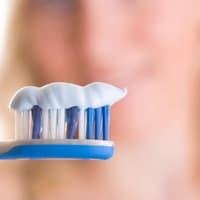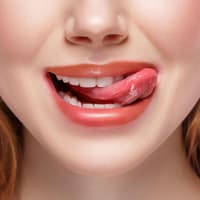
Periodontitis should not be underestimated
The cause of periodontitis (not to be confused with periodontal disease) is usually inadequate dental care, especially of the spaces between the teeth. However, smoking, poor diet and metabolic diseases such as diabetes can also increase the risk of developing this unpleasant and dangerous inflammation of the gums. Timely periodontitis treatment is extremely important, as pathogens can enter the bloodstream through the damaged gums. This can potentially increase the risk of a heart attack. A new study by the University of Buffalo in the state of New York has even found an increased likelihood of breast cancer in women with periodontitis.
New approaches to periodontitis therapy
Until now, the best protection against gum inflammation has been to always brush your teeth thoroughly, use dental floss and ideally have your teeth professionally cleaned twice a year . If the disease still occurs, the dentist removes the bacteria from the gum pockets. Scientists at the University of Pennsylvania (USA) have tested a completely new therapeutic approach. They are trying to intervene in the patient's immune system: an active substance called Cp40, which is injected into the tissue inflamed by periodontitis, is intended to inhibit the production of the body's own protein C3. This protein triggers inflammatory processes. In animal experiments, the administration of Cp40 significantly reduced the inflammation and even caused the bacteria to disappear. The new method of treating periodontitis is now to be tested on human volunteers.
Other useful therapeutic approaches
The use of lasers and light-activated, bacteria-killing substances to support existing periodontitis therapy is also relatively new. As a holistic treatment, a change to a more alkaline diet with plenty of green leafy vegetables can help, as a good supply of the carotenoids and folic acid contained in them has a beneficial effect on gum inflammation. Mouthwashes with sage, myrrh or tea tree oil are also helpful.






